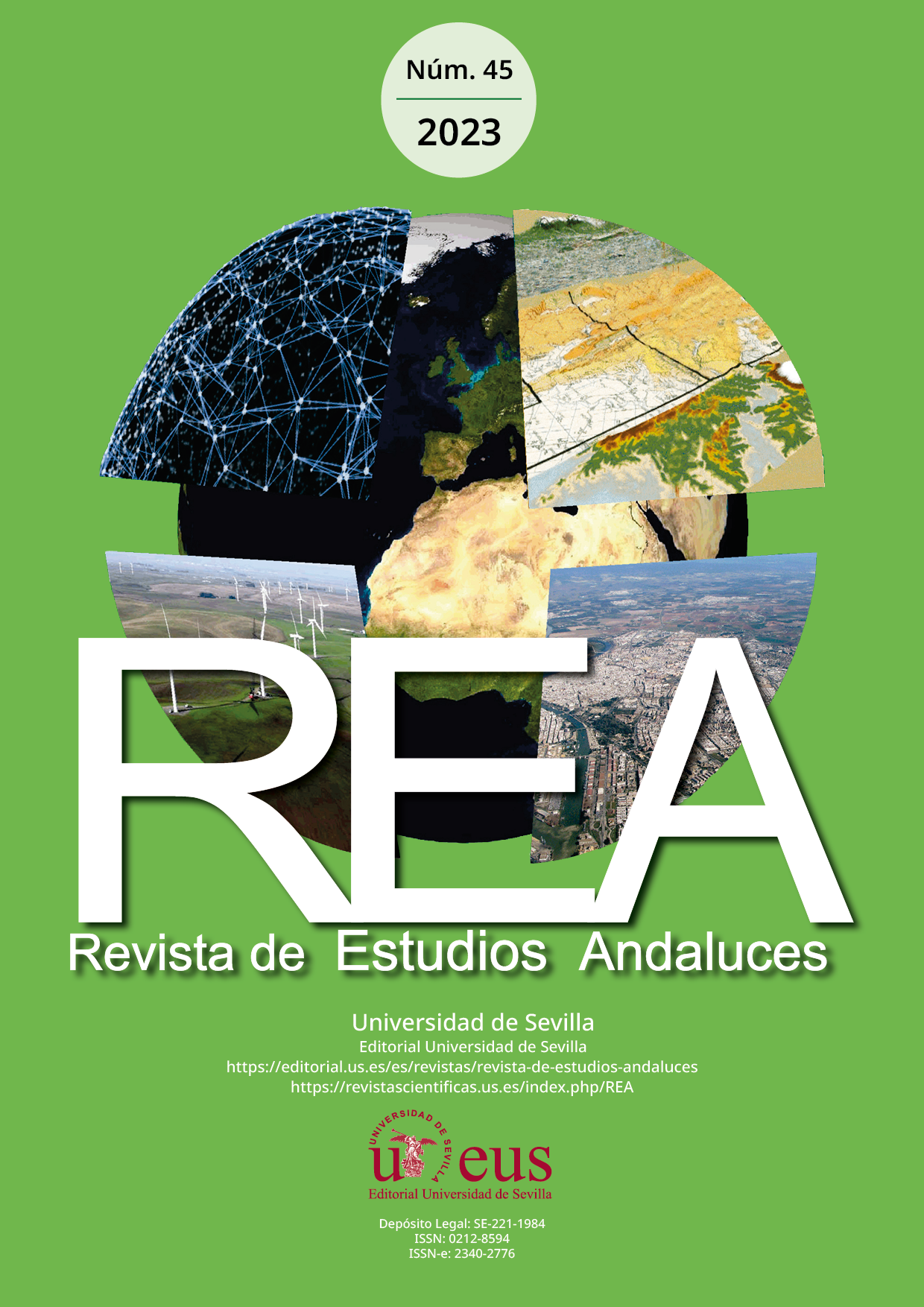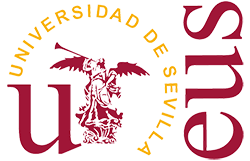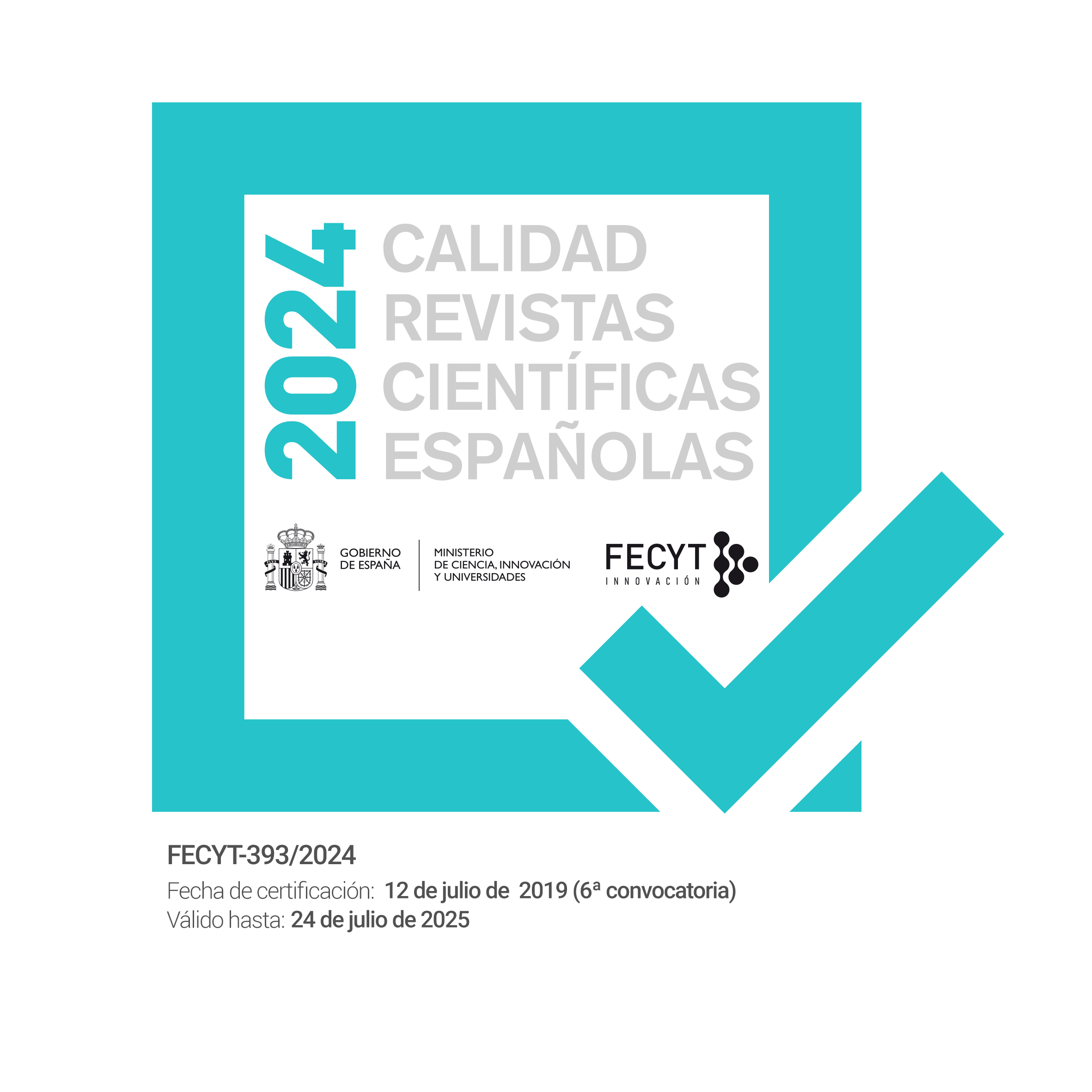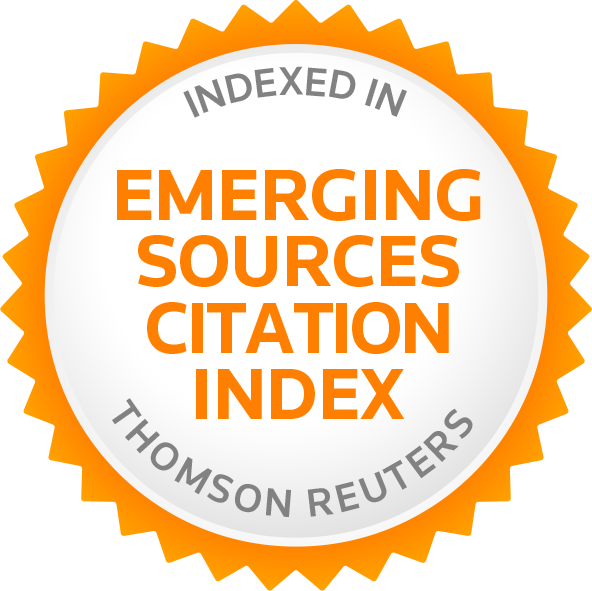A literature review on overtourism to guide the transition to responsible tourism
DOI:
https://doi.org/10.12795/rea.2023.i45.04Keywords:
Overtourism, Conceptual framework, Literature review, Responsible tourism, Covid-19Abstract
Although the pre-pandemic tourism debate was led by Overtourism, when the pandemic erupted, the increasing literature on this topic was still in an initial stage. The mobility restrictions derived from Covid-19 stopped Overtourism, but the problem is still far from being eradicated. There is an increasingly need for a solid body of knowledge on which to build recovery to avoid making past mistakes.
A comprehensive pre-pandemic literature review is carried out, by proposing an overtourism conceptual framework that integrates its causes and consequences. How the pandemic could become an opportunity to transition to a responsible tourism model is discussed.
Downloads
References
Alexis, P. (2017). Over-tourism and anti-tourist sentiment: An exploratory analysis and discussion. “Ovidius” University Annals, Economic Sciences Series, 17(2), 288-293.
Alonso-Almeida, M.D., Borrajo-Millán, F., & Yi, L. (2019). Are social media data pushing overtourism? The case of Barcelona and Chinese tourists. Sustainability, 11(12), 33-56. https://doi.org/10.3390/su11123356
Baños, C.J., Hernández, M., Rico, A.M., & Olcina, J. (2019). The Hydrosocial Cycle in Coastal Tourist Destinations in Alicante, Spain: Increasing Resilience to Drought. Sustainability, 11(16), 4494. https://doi.org/10.3390/su11164494
Benner, M. (2019). From overtourism to sustainability: A research agenda for qualitative tourism development in the Adriatic (Paper No. 92213). MPRA.
Bianchi, R. (2018). The political economy of tourism development: A critical review. Annals of Tourism Research, 70, 88–102. https://doi.org/10.1016/j.annals.2017.08.005
Biddulph, R., & Scheyvens, R. (2018). Introducing inclusive tourism. Tourism Geographies, 20(4), 583-588. https://doi.org/10.1080/14616688.2018.1486880
Boluk, K.A., Cavaliere, C.T., & Higgins-Desbiolles, F. (2019). A critical framework for interrogating the United Nations Sustainable Development Goals 2030 Agenda in tourism. Journal of Sustainable Tourism, 27(7), 847-864. https://doi.org// 10.1080/09669582.2019.1619748
Bourliataux-Lajoinie, S., Dosquet, F., & del Olmo Arriaga, J.L. (2019). The dark side of digital technology to overtourism: the case of Barcelona. Worldwide Hospitality and Tourism Themes, 11(5), 582-593. https://doi.org/10.1108/WHATT-06-2019-0041
Brouder, P. (2020). Reset redux: possible evolutionary pathways towards the transformation of tourism in a COVID-19 world. Tourism Geographies, 22(3), 484-490. https://doi.org/10.1080/14616688.2020.1760928
Buitrago, E.M., & Caraballo, M.A. (2019). Exploring the links between tourism and quality of institutions. Cuadernos de Turismo, 43, 215–247. https://doi.org/10.6018/turismo.43.09
Buitrago, E.M., & Yñiguez, R. (2021). Measuring Overtourism: A Necessary Tool for Landscape Planning. Land, 10(9), 889. https://doi.org/10.3390/land10090889
Burrai, E., Buda, D.M., & Stanford, D. (2019). Rethinking the ideology of responsible tourism. Journal of Sustainable Tourism, 27(7), 992–1007. https://doi.org/10.1080/09669582.2019.1578365
Butler, L. (2018). Challenges and Opportunities. Worldwide Hospitality and Tourism Themes, 10(6), 635-641. https://doi.org/10.1108/WHATT-07-2018-0042
Butler, R. (1974). The social implications of tourist developments. Annals of Tourism Research, 2(2), 100–111. https://doi.org/10.1016/0160-7383(74)90025-5
Butler, R. W., & Dodds, R. (2022). Overcoming overtourism: a review of failure. Tourism Review, 77(1), 35-53. https://doi.org/10.1108/TR-04-2021-0215
Capocchi, A., Vallone, C., Amaduzzi, A., & Pierotti, M. (2020). Is ‘overtourism’ a new issue in tourism development or just a new term for an already known phenomenon? Current Issues in Tourism, 23(18), 2235-2239. https://doi.org/10.1080/13683500.2019.1638353.
Capocchi, A., Vallone, C., Pierotti, M., & Amaduzzi, A. (2019). Overtourism: A literature review to assess implications and future perspectives. Sustainability, 11(12), 3303. https://doi.org/10.3390/su11123303
Cardullo, P., & Kitchin, R. (2018). Smart urbanism and smart citizenship: The neoliberal logic of ‘citizen-focused’ smart cities in Europe. Environment and Planning C: Politics and Space, 1–18. https://doi.org/10.1177/0263774X18806508
Chaney, D., & Seraphin, H. (2021). Covid-19 crisis as an unexpected opportunity to adopt radical changes to tackle overtourism. Anatolia, 31(3), 510-512. https://doi.org/10.1080/13032917.2020.1857804
Chaudhry, P.E., Cesareo, L., & Pastore, A. (2019). Resolving the jeopardies of consumer demand: Revisiting demarketing concepts. Business Horizons. 62 (5), 663-677. https://doi.org/10.1016/j.bushor.2019.05.002
Cheung, K.S., & Li, L.H. (2019). Understanding visitor–resident relations in overtourism: developing resilience for sustainable tourism. Journal of Sustainable Tourism, 27(8). 1197-1216. https://doi.org/10.1080/09669582.2019.1606815
Del Chiappa, G., Atzeni, M., & Ghasemi, V. (2018). Community-based collaborative tourism planning in islands: A cluster analysis in the context of Costa Smeralda. Journal of Destination Marketing and Management 1(8), 41-48. https://doi.org/10.1016/j.jdmm.2016.10.005
Dodds, R., & Butler, R. (2019). The phenomena of overtourism: a review. International Journal of Tourism Cities, 5(4), 519-528. https://doi.org/10.1108/IJTC-06-2019-0090
European Commission, (November, 2020). EU’s next long-term budget & NextgenerationEU. Retrieved from: https://ec.europa.eu/info/strategy/eu-budget/long-term-eu-budget/eu-budget-2021-2027_es#latest (Accessed December 2020).
Fontanari, M., & Traskevich, A. (2021). Consensus and diversity regarding overtourism: the Delphi-study and derived assumptions for the post-COVID-19 time. International Journal of Tourism Policy, 11(2), 161-187. https://doi.org/10.1504/IJTP.2021.117375
García-Hernández, M., Ivars-Baidal, J., & Mendoza, S. (2019). Overtourism in urban destinations: the myth of smart solutions. Boletín de la Asociación de Geógrafos Españoles, 83, 2830, 1–38. http://dx.doi.org/10.21138/bage.2830
Ghidouche K.A.Y., & Ghidouche, F. (2019). Community-based ecotourism for preventing overtourism and tourismophobia. Worldwide Hospitality and Tourism Themes, 11(5), 516-531. https://doi.org/10.1108/WHATT-06-2019-0035
González-Pérez, J.M. (2020). The dispute over tourist cities. Tourism gentrification in the historic Centre of Palma (Majorca, Spain). Tourism Geographies, 22(1), 171-191. https://doi.org/10.1080/14616688.2019.1586986
Goodwin, H. (2011). Taking responsibility for tourism. Goodfellow Publishers Limited
Goodwin, H. (2017). The Challenge of Overtourism (Working Paper No. 4, 1-19). Responsible Tourism Partnership.
Gössling, S., Scott, D., & Hall, C.M. (2021). Pandemics, tourism and global change: A rapid assessment of COVID-19. Journal of Sustainable Tourism, 29(1), 1-20. https://doi.org/10.1080/09669582.2020.1758708
Gough, D.A., Oliver, S., & Thomas, J. (2013). Learning from research: systematic reviews for informing policy decisions: a quick guide. Nesta, London.
Gravari-Barbas, M., & Jacquot, S. (2019). Mechanisms, actors and impacts of the touristification of a tourism periphery: the Saint-Ouen flea market, Paris. International Journal of Tourism Cities, 5(3), 370-391. https://doi.org/10.1108/IJTC-11-2018-0093
Gutiérrez-Taño, D., Garau-Vadell, J.B., & Díaz-Armas, R.J. (2019). The influence of knowledge on residents’ perceptions of the impacts of overtourism in P2P accommodation rental. Sustainability, 11(4), 1043, 1-17. https://doi.org/10.3390/su11041043
Hall, C.M. (2019). Constructing sustainable tourism development: The 2030 agenda and the managerial ecology of sustainable tourism. Journal of Sustainable Tourism. 27 (7), 1044-1060. https://doi.org/10.1080/09669582.2018.1560456
Hall, C.M., Scott, D., & Gössling, S. (2020). Pandemics, transformations and tourism: Be careful what you wish for. Tourism Geographies, 22(3), 577-598. https://doi.org/https://doi.org/10.1080/14616688.2020.1759131
Higgins-Desbiolles, F. (2018). Sustainable tourism: Sustaining tourism or something more? Tourism Management Perspectives, 25, 157-160. https://doi.org/10.1016/j.tmp.2017.11.017
Higgins-Desbiolles, F. (2020). The “war over tourism”: challenges to sustainable tourism in the tourism academy after COVID-19. Journal of Sustainable Tourism, 29(4), 551-569. https://doi.org/10.1080/09669582.2020.1803334
Inskeep, E. (1991). Tourism planning: An integrated and sustainable development approach. John Wiley & Sons, New York.
Jamieson, W., & Jamieson, M. (2019). Overtourism management competencies in Asian urban heritage areas. International Journal of Tourism Cities, 5(4), 581-597. https://doi.org/10.1108/IJTC-08-2019-0143
Jang, H., & Park, M. (2020). Social media, media and urban transformation in the context of overtourism. International Journal of Tourism Cities, 6(1), 233-260. https://doi.org/10.1108/IJTC-08-2019-0145
Kainthola, S., Tiwari, P., & Chowdhary, N. R. (2021). Overtourism to Zero Tourism: Changing Tourists’ Perception of Crowding Post Covid-19. Journal of Spatial and Organizational Dynamics, 9(2), 115-137. https://doi.org/10.1108/978-1-83909-706-520211002
Kallis, G., Kostakis, V., Lange, S., Muraca, B., Paulson, S., & Schmelzer, M. (2018). Research on Degrowth. Annual Review of Environment and Resources, 43(1), 291–226.
https://doi.org/10.1146/annurev-environ-102017-025941
Koens, K., Postma, A., & Papp, B. (2018). Is overtourism overused? Understanding the impact of tourism in a city context. Sustainability, 10(12), 4384, 1-15. https://doi.org/10.3390/su10124384
Koens, K., Melissen, F., Mayer, I., & Aall, C. (2021). The Smart City Hospitality Framework: Creating a foundation for collaborative reflections on overtourism that support destination design. Journal of Destination Marketing and Management. 19, 100376. https://doi.org/10.1016/j.jdmm.2019.100376
Koščak, M., & O’Rourke, T. (2021). Post-Pandemic Sustainable Tourism Management: The New Reality of Managing Ethical and Responsible Tourism. Routledge. https://doi.org/10.4324/9781003153108
Lew, A.A., Cheer, J.M., Haywood, M., Brouder, P., & Salazar, N.B. (2020). Visions of travel and tourism after the global COVID-19 transformation of 2020. Tourism Geographies, 22(3), 455-466. https://doi.org/10.1080/14616688.2020.1770326
Liu, A., & Ma, E. (2019). Travel during holidays in China: Crowding’s impacts on tourists’ positive and negative affect and satisfactions. Journal of Hospitality and Tourism Management, 41, 60-68. https://doi.org/10.1016/j.jhtm.2019.09.008
Maingi, S.W. (2019). Sustainable tourism certification, local governance and management in dealing with overtourism in East Africa. Worldwide Hospitality and Tourism Themes, 11(5), 532-551. https://doi.org/10.1108/WHATT-06-2019-0034
McKinsey & WTTC. (2017). Coping with Success: Managing overcrowding in tourist destinations. World Travel and Tourism Council, London.
Mihalic, T. (2020). Concpetualising overtourism: A sustainability approach. Annals of Tourism Research. 84, 103025. https://doi.org/10.1016/j.annals.2020.103025
Milano, C. (2018). Overtourism, malestar social y turismofobia. Un debate controvertido. Revista de Turismo y Patrimonio Cultural, 16(3), 551-564. https://doi.org/10.25145/j.pasos.2018.16.041
Milano, C., Novelli, M., & Cheer, J.M. (2019). Overtourism and degrowth: a social movements perspective. Journal of Sustainable Tourism, 27(12), 1857-1875. https://doi.org/10.1080/09669582.2019.1650054
Niewiadomski, P. (2020). COVID-19: from temporary deglobalisation to a re-discovery of tourism? Tourism Geographies, 22(3), 651-656. http:// doi.org/10.1080/14616688.2020.1757749
Nilsson, J.H. (2020). Conceptualizing and contextualizing overtourism: the dynamics of accelerating urban tourism. International Journal of Tourism Cities, 6(4), 657-671. https://doi.org/10.1108/IJTC-08-2019-0117
Novy, J. (2019). Urban tourism as a bone of contention: four explanatory hypotheses and a caveat. International Journal of Tourism Cities, 5(1), 63-74. https://doi.org/10.1108/IJTC-01-2018-0011
Nunes, S., & Cooke, P. (2021). New global tourism innovation in a post-coronavirus era. European Planning Studies, 29(1), 1-19, https://doi.org/10.1080/09654313.2020.1852534
Panayiotopoulos, A., & Pisano, C. (2019). Overtourism dystopias and socialist utopias: Towards an urban armature for Dubrovnik. Tourism Planning and Development. 16 (4), 393-410. https://doi.org/10.1080/21568316.2019.1569123
Papathanassis, A. (2017). Over-tourism and anti-tourist sentiment: An exploratory analysis and discussion. “Ovidius” University Annals, Economic Sciences Series, 17(2), 288-293.
Pasquinelli, C., & Trunfio, M. (2021). The missing link between overtourism and post-pandemic tourism. Framing Twitter debate on the Italian tourism crisis, Journal of Place Management and Development. Vol. ahead-of-print No. ahead-of-print. https://doi.org/10.1108/JPMD-07-2020-0073
Peeters, P.M., Gössling, S., Klijs, J., Milano, C., Novelli, M., Dijkmans, C.H.S., Eijgelaar, E., Hartman, S., Heslinga, J., Isaac, R., & Mitas. O. (2018). Research for TRAN Committee-Overtourism: impact and possible policy responses. European Parliament, Directorate General for Internal Policies, Policy Department B: Structural and Cohesion Policies, Transport and Tourism.
Perkumienė, D., & Pranskūnienė, R. (2019). Overtourism: Between the right to travel and residents’ rights. Sustainability, 11(7), 2138, 1-17. https://doi.org/10.3390/su11072138
Perles-Ribes, J. F., Ramón-Rodríguez, A. B., Moreno-Izquierdo, L., & Such-Devesa, M. J. (2020). Machine learning techniques as a tool for predicting overtourism: The case of Spain. International Journal of Tourism Research, 22(6), 825-838. https://doi.org/10.1002/jtr.2383
Pinke-Sziva, I., Smith, M., Olt, G., & Berezvai, Z. (2019). Overtourism and the night-time economy: a case study of Budapest. International Journal of Tourism Cities, 5(1), 1-16. https://doi.org/10.1108/IJTC-04-2018-0028
Sarantakou, E., & Terkenli, T.S. (2019). Non-institutionalized forms of tourism accommodation and overtourism impacts on the landscape: the case of Santorini, Greece. Tourism Planning and Development, 16(4), 411-433. https://doi.org/10.1080/21568316.2019.1569122
Seraphin, H., Sheeran, P., & Pilato, M. (2018). Over-tourism and the fall of Venice as a destination. Journal of Destination Marketing and Management. 9, 374-376. https://doi.org/10.1016/j.jdmm.2018.01.011
Seraphin, H., Zaman, M., Olver, S., Bourliataux-Lajoinie, S., & Dosquet, F. (2019). Destination branding and overtourism. Journal of Hospitality and Tourism Management, 38(1), 1-4. https://doi.org/10.1016/j.jhtm.2018.11.003
Smith, M.K., Sziva, I.P., & Olt, G. (2019). Overtourism and resident resistance in Budapest. Tourism Planning and Development, 16(4), 376-392. https://doi.org/10.1080/21568316.2019.1595705
Trancoso, A. (2018). Venice: the problem of overtourism and the impact of cruises. Journal of Regional Research. 42, 35-51. https://www.redalyc.org/jatsRepo/289/28966251003/28966251003.pdf
UNWTO (2013). Demographic change and tourism. European Tourism Commission and UNWTO, Madrid.
UNWTO (2018). ‘Overtourism’? understanding and managing urban tourism growth beyond perceptions. UNWTO, Madrid.
UNWTO (2021). Covid-19 y el sector turístico. UNWTO. Available at: https://www.unwto.org/es/covid-19-y-sector-turistico-2020 (Accessed December 2020).
Veiga, C., Santos, M.C., Aguas, P., & Santos, J.A.C. (2018). Sustainability as a key driver to address challenges. Worldwide Hospitality and Tourism Themes, 10(6), 662-673. https://doi.org/10.1108/WHATT-08-2018-0054
Wall, G. (2020). From carrying capacity to overtourism: a perspective article. Tourism Review, 75(1), 212-215. https://doi.org/10.1108/TR-08-2019-0356
Published
How to Cite
Issue
Section
License
Copyright (c) 2023 Revista de Estudios Andaluces (Journal of Andalusian Studies)

This work is licensed under a Creative Commons Attribution-NonCommercial-ShareAlike 4.0 International License.
The electronic edition of the Revista Estudios Andaluces has been offered in open access since issue number 28 published in 2011 to the present day. The printed and electronic editions of this Journal are edited by the Seville University Press, and it is necessary to expressly cite the source for any partial or total reproduction.
The Journal “Revista de Estudios Andaluces” does not have either article submission charges or article processing charges (APCs). The Journal is free from the moment each issue is published and its contents are distributed under the “Creative Commons Attribution-NonCommercial-NoDerivs 4.0 International” licence, which allows the user of the Revista de Estudios Andaluces open access in accordance with the criteria of the Budapest Open Access Declaration. You can consult the informative version and the legal text of the licence here. This fact must be expressly stated in the above form when necessary.







